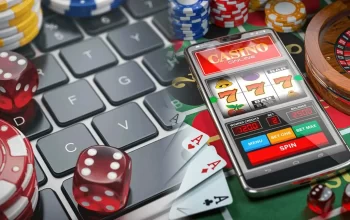Recovering from gambling addiction takes time. They may have underlying issues that must be addressed and must feel ready to change in order to successfully make progress towards recovery.
Treatment options available to gamblers may include counseling and medication. Cognitive Behavioral Therapy has proven especially successful in altering unhealthy gambling behaviors and altering irrational beliefs.
Treatment options
Many people with gambling addictions have successfully found recovery, with various treatment options including therapy and support groups available to treat the problem. Therapy sessions or groups may help people discover effective coping methods which allow their life to get back on track more quickly.
One essential component of recovery from gambling addiction is to identify any triggers that may lead to further gambling behavior, including people, places or things that remind you of gambling. Furthermore, it’s crucial that activities which lead to relapse be avoided; such as attending events where gambling friends may attend or watching gambling ads on TV.
Medications may also help treat pathological gambling. Grant’s research demonstrated how NAC reduced pathological gamblers’ impulsiveness and compulsiveness. Other studies used opiate antagonists for treating gambling addiction and antidepressants to lessen negative emotions like depression. Finally, behavioral therapy can also be beneficial when treating this addiction.
Triggers
Gambling addiction can bring on many emotional, psychological and financial repercussions that impact work, family life and relationships as well as leading to depression and anxiety. A mental health professional may prescribe medication to alleviate these symptoms and assist you in recovering from gambling addiction.
Through therapy, you will learn to identify your triggers and develop effective coping mechanisms without turning to gambling. Your treatment plan may include individual counselling sessions or group therapy to help understand why gambling happens as well as any negative thought processes that encourage it.
Strengthen your support network by sharing your struggles with friends and family. Consider joining Gamblers Anonymous if that works better, and focus on the positive things in life by volunteering or writing daily lists of gratitudes.
Addictions
Gambling addiction can be overcome. While addictions are complex and don’t respond to willpower alone, professional help may be available for treatment including family therapy, behavioral therapy and medications.
Money loss is often the catalyst for pathological gambling, leaving gamblers feeling powerless to cope financially, so their only recourse may be increasing their gambling activity – known as “chasing your losses.” Other triggers may include lying to loved ones about spending habits or depending on other people for funding their addiction as well as coexisting mental health conditions like depression or anxiety that precipitate such behaviors.
Cognitive behavioral therapy (CBT) has proven particularly successful at treating gambling addiction. CBT helps individuals identify unhealthy thought patterns and replace them with healthier ones, while support groups and self-help materials may also prove helpful. Furthermore, medications like antidepressants and mood stabilizers may reduce symptoms associated with mental health conditions that underlie gambling addiction.
Prevention
Gambling addictions can cost someone dearly, with significant money losses often occurring without their family knowing about it or resorting to theft or fraud to fund their habit. Such behavior can damage relationships, lead to depression and even lead to suicide attempts.
Admitting that gambling addiction exists can be difficult; especially after having lost so much money and compromised your relationships. Acknowledging this need requires immense strength; yet many have managed to break free and rebuild their lives after so doing.
Therapists can teach healthy coping mechanisms and assist in identifying triggers of compulsive gambling. They may suggest ways to overcome urges and create a plan for dealing with them. Treatment may also include cognitive-behavioral therapy which uses behavioral modification techniques to alter unhealthy behavior or thoughts – these changes may improve mental health as well as help you resolve financial, work or relationship issues caused by gambling.




